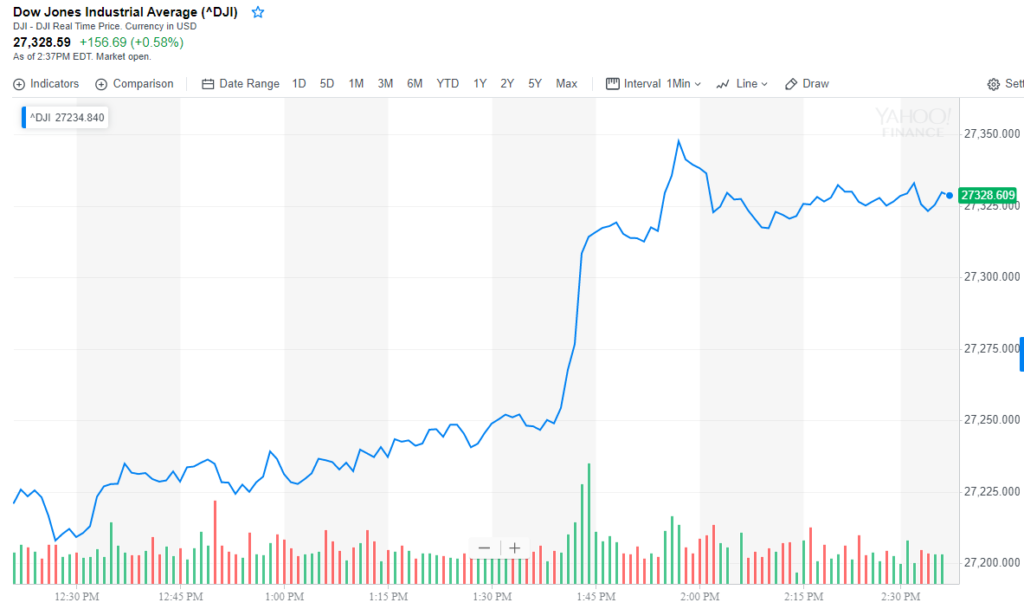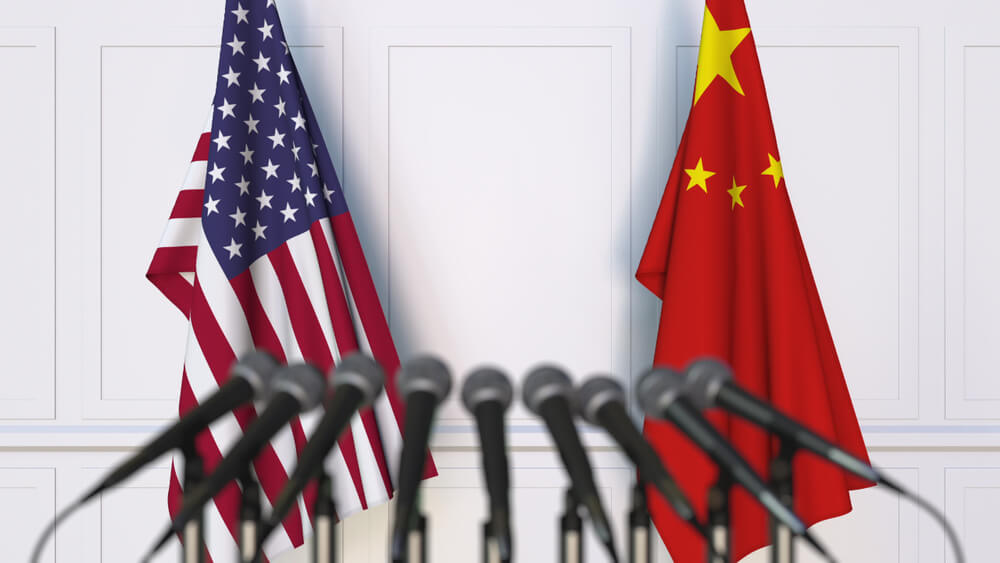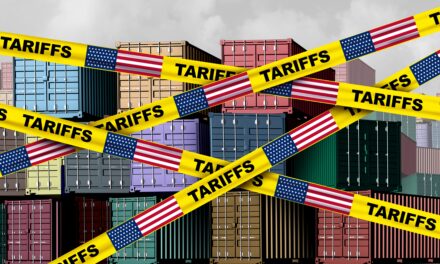U.S. Trade Representative Robert Lighthizer will lead a delegation of senior officials to China on Monday for the first face-to-face trade negotiations since talks broke down again in May.
Lighthizer, Treasury Secretary Steve Mnuchin and others will meet with Chinese Vice Premier Liu He next week in Shanghai to restart negotiations. The meeting will reportedly include a broad discussion on a number of trade issues, and it may take up to six months for a new deal to materialize, according to U.S. officials.
In the short-term, the news caused markets to rise. The Dow jumped from 27,248 at 1:39 p.m. on the East Coast all the way to 27,347 by 1:57 p.m. EDT.

The S&P 500 also saw a spike after the news broke, jumping from 2,995 at 1:39 p.m. EDT to 3,003 by 1:57 p.m. Similarly, the Nasdaq jumped from 8,128 at 1:39 p.m. to 8,240 by 1:57 p.m.
According to the International Monetary Fund, global growth is expected to be 0.1% lower in 2019 and 2020 due to the trade war, and that China is being hurt more than the U.S. The fund’s breakdown upgraded its U.S. GDP projection for 2019 from 2.3% up to 2.6%, while downgrading China from 6.3% to 6.2%.
“In China, the negative effects of escalating tariffs and weakening external demand have added pressure to an economy already in the midst of a structural slowdown and needed regulatory strengthening to rein in high dependence on debt,” the IMF said in its twice-a-year World Economic Outlook report.
However, the IMF also warned the White House against escalating trade tensions further.
“Multilateral and national policy actions are vital to place global growth on a stronger footing,” the IMF said. “The pressing needs include reducing trade and technology tensions and expeditiously resolving uncertainty around trade agreements (including between the UK and the EU and the free trade area encompassing Canada, Mexico and the US). Specifically, countries should not use tariffs to target bilateral trade balances or as a substitute for dialogue to pressure others for reforms.”
The IMF also raised its growth forecast for the U.K. from 1.2% to 1.3%, and left it unchanged for 2020 at 1.4%.
“The forecast assumes an orderly Brexit followed by a gradual transition to the new regime,” the IMF said. “However, as of mid-July, the ultimate form of Brexit remained highly uncertain.”




